What are the Features of Freight Elevator?
Before discussing the cost of freight elevators, it’s important to first understand their characteristics. Since freight elevators are designed for heavy items, they are quite different from passenger elevators. Here are some features of the freight elevator that make it an ideal option for transporting bulky items:
High load capacity: One of the main features of freight elevators is their high load capacity. In other words, they are built to accommodate heavy weights, usually between 1,000 kg and 10,000 kg.
Spacious: Freight elevators have more spacious cabins because their dimensions are designed to accommodate big items to be transported.
Durability: Since freight elevators are built for heavy loads, they are built with durable materials like 12 or 14-gauge steel wall panels. In addition, the floor and walls are usually lined with anti-collision strips, which makes these elevators wear-resistant. As a result, they can withstand heavy materials without being damaged easily.
Safety features: Although these elevators are not designed for people, they still have robust safety features to ensure the goods are transported without damage. Some of these features include overload sensors, stop buttons, alarms, and many other security measures.
Customizable: Freight elevator designs are customizable. Therefore, you can make requests to ensure compliance with standards in your country or to optimize your operations.
Stability: Freight elevators often carry heavy materials so they travel at a lower speed (typically less than 1 m/s) to maximize stability and safety.
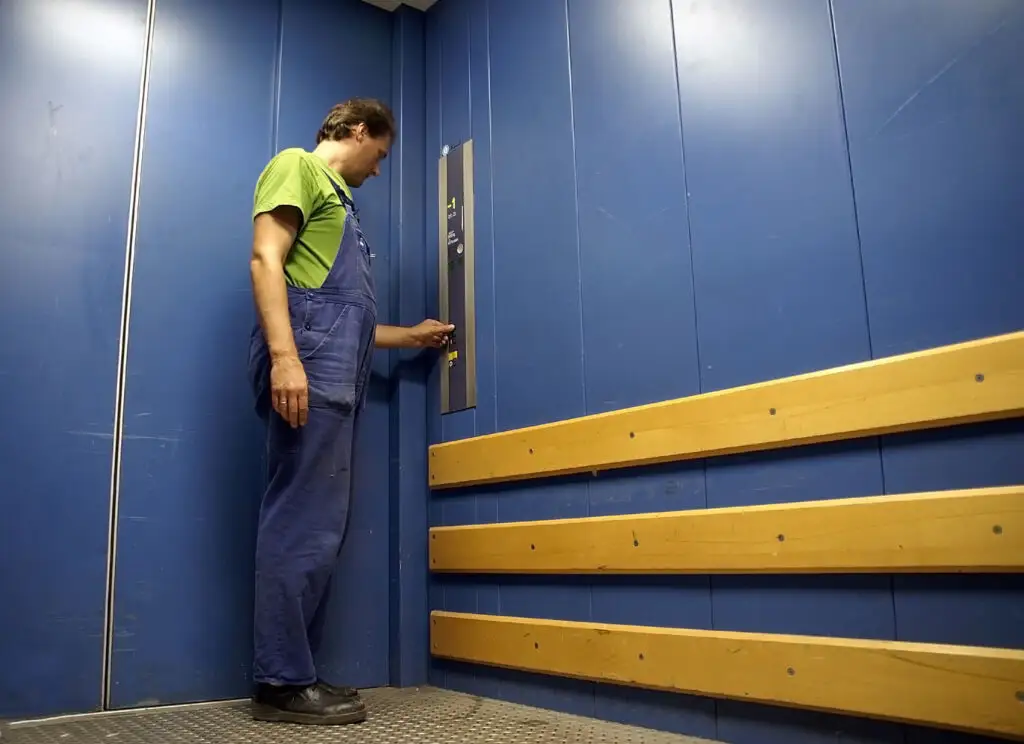
Types of Freight Elevators
Before diving into freight elevator costs, let us briefly examine the available types. They include hydraulic, traction, and MRL, each with a unique mode of operation.
Elevadores de carga hidráulicos
Hydraulic elevators are powered by a hydraulics system that consists of a pump, piston, and fluid. The hydraulic pump pushes the fluid from a reservoir into a cylinder, thereby creating enough pressure to move the piston. The hydraulic fluid, usually oil, converts the pressure into mechanical energy that lifts or lowers the elevator cabin.
Hydraulic elevators run at a slow speed- ranging between 0.3m/s- 0.5m/s. In addition, hydraulic freight elevators have a low load-bearing capacity- about 1000kg and 5000kg. Therefore, they are best suited for low-rise buildings.
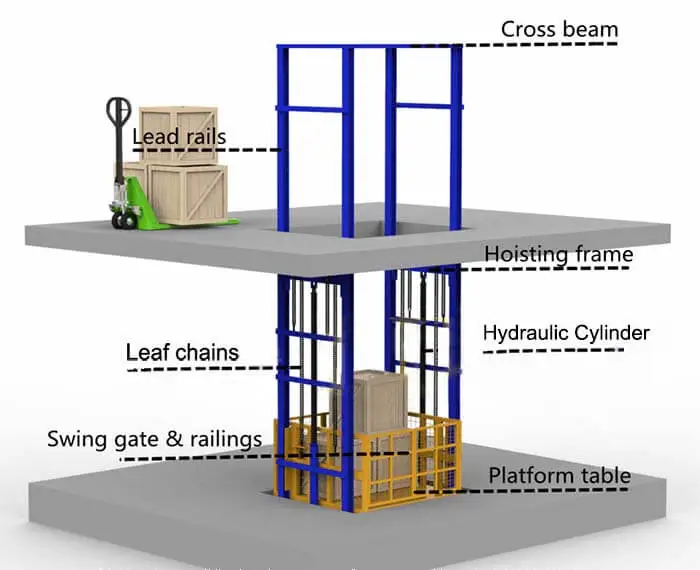
Elevadores de carga de tracción
Traction elevators use an electric motor to drive the traction sheave (or pulley) and ropes (or cables) to move the cabin up or down. They also work with a counterweight that moves in the opposite direction to the elevator cabin. Subsequently, the counterweight’s balancing effect reduces the load on the electric motor.
A traction freight elevator can operate at a higher speed of about 1-2 meters per second. In addition, the load-bearing capacity is relatively higher than hydraulic elevators. Moreso, this elevator is suitable for all types of buildings, from low-rise to high-rise.

MRL Freight Elevators
Machine room-less freight elevators are practical and space-saving solutions for carrying bulky materials up or down a building. It uses a traction system and a counterbalance mechanism to enhance energy efficiency. MRL freight elevator design eliminates the traditional machine room structure and integrates the drive system and control equipment on the car or in the shaft.
In other words, the machine room-less freight elevator is designed to save space. Therefore, it is an ideal elevator solution where the building height is limited, or there is a need to maximize available space.
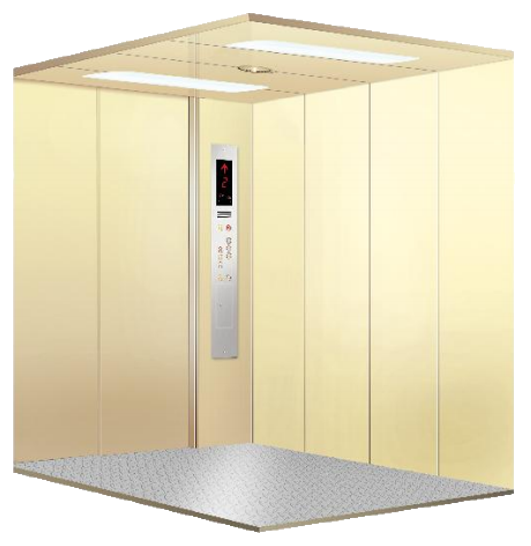
How Much Does A Freight Elevator Cost
The cost of purchasing a freight elevator ranges from $15,000 to $100,000, depending on various factors such as elevator type, load capacity, dimensions, travel height, floors, etc.
Understanding the factors that influence freight elevator costs can help you choose the type and size that best fits your business needs. These factors include:
Elevator Type
Hydraulic freight elevators generally cost about $15,000-$50,000 for installation based on the capacity and size. However, it is crucial to understand the associated maintenance cost. Since this elevator relies on a cylinder system and hydraulic pump, there is a need for pump upkeep and frequent oil changes.
For traction Freight Elevators, installation costs are usually between $18,000 and $10,000 or higher for very tall buildings. Since traction elevators rely on motor-driven ropes and a counterweight, they are more expensive and reliable. Therefore, it is a faster and more effective option for mid-rise to high-rise buildings.
On the other hand, the cost of installing a MRL freight elevator ranges between $15,000 to $60,000. This type of elevator is more expensive because it is an upgraded version that does not require a machine room.
Here are some example cases:
| Elevator Type | Capacidad | Velocidad | Travel Floor | Cost |
| Hydraulic | 2000kg~3000kg | 0.1m/s | 2 story | 15,000~18000 USD |
| Hydraulic | 4000kg~5000kg | 1.0m/s | 8 story | 40,000~45,000 USD |
| Traction | 1600kg | 1.0m/s | 4 story | 18.000~20,000 USD |
| MRL Traction | 2000kg | 0.5m/s | 8 story | 20,000~25,000 USD |
Capacidad de carga
The load capacity of a freight elevator can significantly affect its cost. For example, a 2-ton hydraulic freight elevator may cost about $15,000 to $20,000. Alternatively, a hydraulic elevator with a capacity of 3 tons could be anywhere around $20,000 – $30,000 depending on other requirements.
Travel Height and Number of Floors
Another significant factor that affects the overall cost of freight elevators is travel height. The number of floors in the building determines the distance the elevator can travel.
For example, installing a hydraulic freight elevator in a two-story building typically costs around $20,000 or less. However, the cost increases by approximately $2,000 for each additional floor due to the need for more materials and labor.
Dimensiones
The required dimension of a freight elevator influences the total cost. For example, a standard-sized elevator may cost about $15,000, while a larger-sized elevator can cost up to $50,000.
Door Types and Open Method
Another factor that affects the total price of installing a freight elevator is your preferred door type. If you want a center-opening door, you may need to pay an extra $2,000 or less. However, if you want something sophisticated like a double-sided door, you may incur an additional cost of up to $6,000.
Cabin and Door Panel Finishes
The type of finishes on the cabin and door panel can affect the price of the elevator. Standard finishes may not require an extra fee, but premium materials attract extra costs of about $1,000 – $5,000.
Customization Needs
Depending on the supplier, you could make custom requirements, which often significantly impact costs. For example, adding fire-resistant doors may cause an additional fee of about $1,000.
Energy Efficiency and Technology
Advanced systems like an electric motor might increase the cost of freight elevators by $5,000 to $10,000. However, they are an excellent long-term investment.
Brand and Supplier
Well-known brands are typically more expensive due to their reputation and quality. For example, purchasing a freight elevator from brands like KONE or Otis can cost 50% more than from a standard supplier. However, Dazen offers the same quality and certification standards as Otis at just 60% of the price. Feel free to contact our experts to help plan your project.
Installation Region
The location of your business also impacts the cost of the elevator. For instance, if your business is in developed countries like those in Europe or North America, the installation costs will be significantly higher than in regions such as Africa or Southeast Asia. This is due to stricter standards, higher labor costs, and increased shipping expenses.
Garantía
Getting a warranty for your elevator is an excellent investment, so it may influence the total cost. For example, most suppliers only offer a 1-year warranty, and extending the warranty typically requires additional fees.
En Dazen, we provide a 2-year free warranty for all elevators, feel free to get inquiries for your project.
Choose a Reliable Freight Elevator Supplier – Dazen Elevator
Choosing a reliable freight elevator supplier requires careful consideration of various options. Dazen elevators strictly adhere to the latest EN81-20 standards, delivering top-quality elevators at competitive prices. Contáctenos today to make your freight elevator investment truly worthwhile!
Some cases:
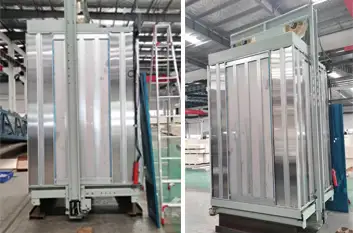
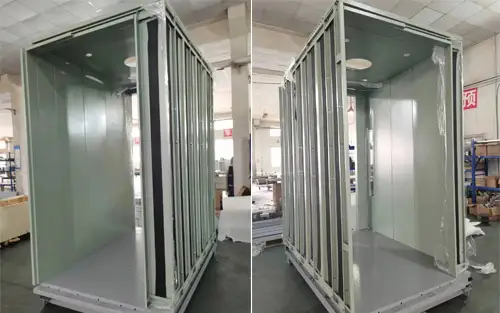
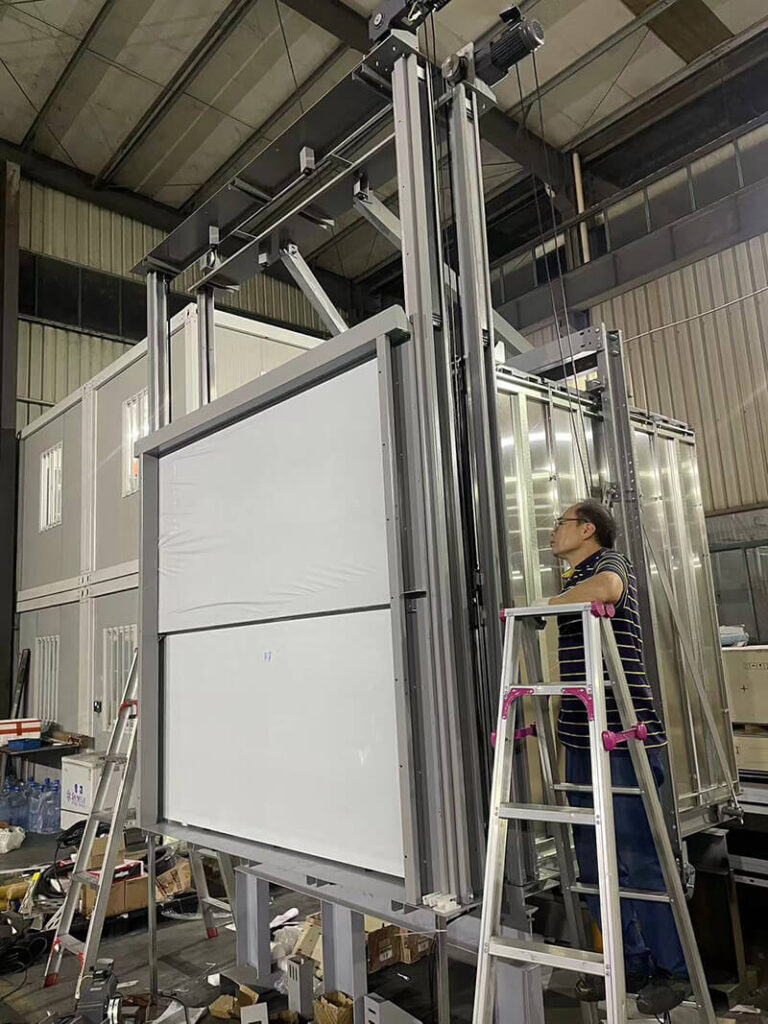
Preguntas más frecuentes
Do I need local permits before installing a freight elevator?
Yes, you need to get local permits from your state government before installing a freight elevator. In addition, you need to get updated information regarding safety measures and other elevator requirements as stated by the relevant authority.
Can Dazen be responsible for local installation?
Yes, Dazen can be responsible for local installation. We have over 100 partners around the world, so you can receive appropriate installation support. In addition, Dazen can provide overseas installation engineers for special projects.
How long does it take to install a freight elevator?
The installation of a freight elevator can take 2-4 months. This installation period varies based on several factors, such as size, complexity, permits, elevator type, and customization.

